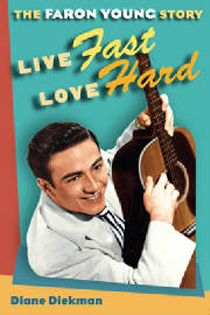I have been very narrow in my focus about self-publishing. Vanity press. But I see so many opportunities right now that involve self-publishing. Especially if you have more than words to offer. Photographs, drawings, recipes, ephemera. Pictured here is the cover of a book, Wild at the Edges, that Virginia Spiegel put together with the help of Blurb Books software.
She is selling the book at a reasonable amount and 25 percent of the income will go to the American Cancer Society. A beautiful book in concept and execution. And it is self-published.
Blurb Books and I think Lulu also offers an easy and not so expensive way to craft a book. I don't advocate these books in place of selling your work with a respected publisher, but I do think making your own books can give you another tool to accomplish what you have set out to do.
1. A book to use/sell when you perform readings or lectures or inspirational talks. Linda Swink published a handbook with a small publisher to promote when she went on her speaking tour of Toastmasters. The book was about speaking!
2. A book to compile your work as in my case, personal essays.
3. A book to record family history or photos or ephemera that you don't want forgotten by your children, grandchildren. A way to document a life that may not gather the attention of New York publishers. Mona Vaneck has made books for her family. She has also compiled and written historic one-of-a-kind books that were not self-published. So there are small publishing houses and sponsors for books that may not have a wide appeal.
4. A message you feel passionate about. Recently I reviewed a self-published book by a man who thought 'character' should be put back into the business world. Beautiful book, by the way.
5. Motivation for you to look at. Something tangible and compact that reminds you where you've been and where you're going. Perhaps a more formal type of journal. If you're like I am, I have papers spread everywhere. Clippings from my years in the newspaper business. I'd love to compile some of that in a book or a series of books. My kids might actually save those and not throw them in the trash when they are forced to clean out all of the things I fail to get rid of.
6. A tool to offer to publishers or anyone interested in seeing what you can do. Something to thrust under the nose of a fellow writer or neighbor or mother-in-law who thinks you write for a hobby.
7. A fundraiser. Sell books with a percentage going to ALS or Cancer, such as Karna Converse has done and to document a life that should not be forgotten.
Do I think these will be a strong foundation for a writing business? Probably not.
But if you are compelled to write and want to see your work in book form, this may be just what a person needs to take them to the next level. If nothing else it is a learning tool and gets a writer into marketing which has become an important part of the book selling equation.
A blog is a form of open book where you can post your writings, add some illustrations, and offer it to the world. The problem with a blog can be that it will then be considered 'published' by any editor seeking to purchase your work.
If you have a body of work that you want to display -- there's no reason you should keep it in a drawer, not with the software technology and low cost book makers available today. Will it hurt your chances of getting with a big publisher? No. If you are the quality of writer they want, nothing will stop them.
But most important. Write what you want to write; what you're compelled to write. And then work on making it better!
Subscribe to:
Post Comments (Atom)























No comments:
Post a Comment